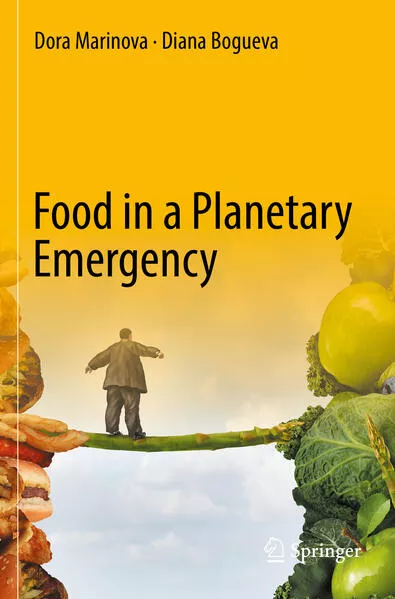
- Publikationen ca: 1
- Fragen & Antworten
Dora Marinova
Dora Marinova is Professor of Sustainability at the Curtin University Sustainability Policy (CUSP) Institute, Australia which she established in 2007 and where she was Director between 2015 and 2018 and Deputy Director between 2007 and 2015. Dora started as an academic at the University of National and World Economy, Sofia, Bulgaria and previously worked at Murdoch University, Australia where she was Head of School of the Institute for Sustainability and Technology Policy (ISTP). Her areas of research interest cover sustainability, innovation and sustainometrics.
Dora has 370 refereed publications and has supervised more than 70 PhD students to successful completion. She has published in high-impact journals, including Scientometrics, Journal of Cleaner Production, Journal of Econometrics, Nanotechnology and Sustainability. Two of the books she co-edited – “Impact of Meat Consumption on Health and Environmental Sustainability” and “Environmental, Health and Business Opportunities in the New Meat Alternatives Market” – received “Best in the World” at the prestigious 22nd and 24th Gourmand Awards, in the categories of Sustainable Food and Vegetarian Food respectively. Between 2013 and 2020, Dora served as a member of the Centres of Research Excellence Peer Review Panels on Population Health and Health Services, National Health and Medical Research Council (NHMRC), Australian Government. She is an Elected Member of the Australian Institute of Aboriginal and Torres Strait Islander Studies (AIATSIS) and Elected Fellow of the Modelling and Simulation Society of Australia and New Zealand (MSSANZ) and the International Environmental Modelling and Software Society (IEMSS) headquartered in Switzerland. For the period 1970–2021, Scopus lists her as Australia’s top author and 23rd in the world in the area of sustainability. Four of Dora’s papers co-authored with Diana Bogueva are ranked in the top 5% in the world’s research output by Altmetric for the worldwide attention in the social media they have received.
Dr Diana Bogueva is proactive interdisciplinary researcher focused on consumer behaviour change, alternative proteins, future novel food processing technologies, food sustainability and harmonisation. Currently she is the Manager of the Centre for Advanced Food Engineering, the University of Sydney and a Research Fellow at the Curtin University Sustainability Policy (CUSP) Institute, Australia. Diana’s work has won two international awards: the Australian National Best Book winner in 2019 and the World’s Best Book award 2020 in the Vegetarian Food category at the prestigious 24th Gourmand Awards, considered equivalent to the Oscars in the area of food, for her co-edited book with Prof. Marinova “Environmental, Health and Business Opportunities in the New Meat Alternatives Market”. In 2020, she won the Faculty of Humanities Journal Article of the Year Award at Curtin University for her co-authored paper “Planetary health and reduction in meat consumption”. Altmetric scored four of her papers in the top 5% of all research output in the world. She is also a finalist in the 10th International Book Award at America’s Book Fair 2019 for her co-edited book “Handbook of Research on Social Marketing and Its Influence on Animal Origin Food Product Consumption”.
Diana is an active member, Working Groups Director and Ambassador for Australia at the Global Harmonisation Initiative, headquartered in Austria. She is an Elected Member-in-Large at the Non-thermal Processing Division of the international Institute of Food Technologies headquartered in USA. Diana is a program producer and presenter at the Australian Special Broadcasting Services (SBS) Radio and in 2017, was a finalist at the New South Wales’ Premier Multicultural Media Awards for best radio and audio reports. She is also a member of the International Federation of Journalists headquartered in Belgium.
Food in a Planetary Emergency
This book Food in a Planetary Emergency is a timely overview of the current food systems and the required transformations to respond to the challenges of climate change, population pressures, biodiversity loss and use of natural resources, such as soils, water and phosphorus.
